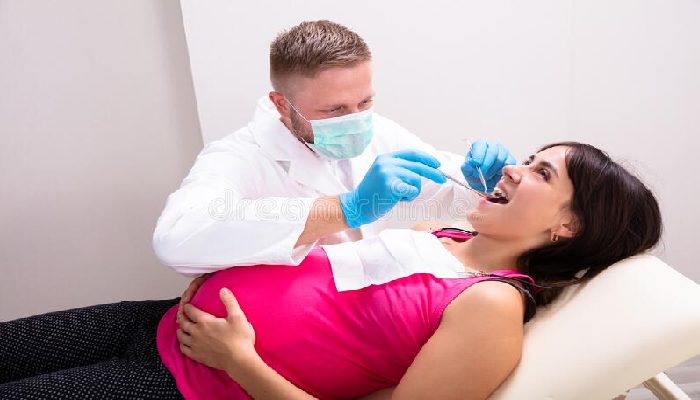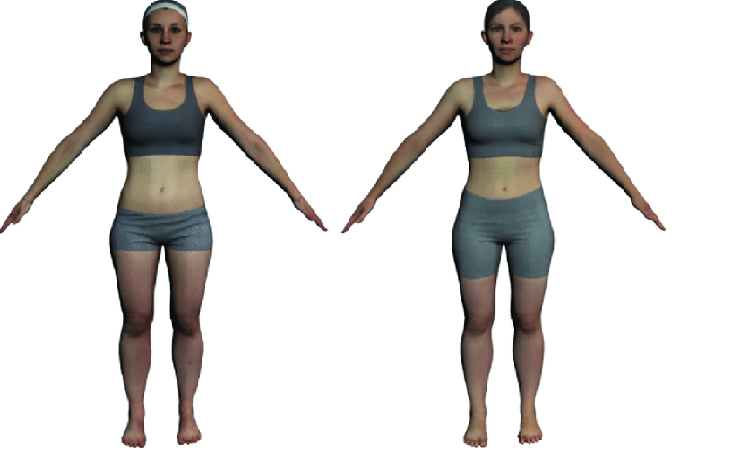How Pregnancy Affects Oral Health
Due to the increase in estrogen and progesterone hormone levels during pregnancy and the difficulty of care, it can cause diseases in the teeth and gums.
If the formed plaque is not removed, it causes gingivitis. This condition is called “pregnancy gingivitis”. The gingiva is red, increased in volume, tender and bleeding. This picture mostly affects the majority of pregnant women in the 2nd trimester with varying severity.
If gingivitis is already present, it may increase in severity during pregnancy and progress to periodontitis if left untreated.
How To Prevent Tooth Inflammation?
Gingivitis can be prevented by effective care and cleaning of the teeth.
Teeth should be brushed at least twice a day and all teeth should be cleaned with dental floss.
It should be rinsed with anti-plaque and fluoride mouthwashes.
Along with a balanced diet, vitamin C and B12 supplements are also important for maintaining oral health.
Visiting the dentist more frequently also prevents the development of gingivitis by providing effective plaque control.
When should you go to the dentist?
If pregnancy is planned or suspected, the dentist should be visited beforehand. If there are existing problems, the mouth should be made hygienic.
Procedures That Should Not Be Done During Pregnancy
The procedures that can be done during pregnancy are limited and should be done within the knowledge and recommendation of the doctor following the pregnancy.
The best time for any dental treatment is between the 4th and 6th months.
In emergency situations accompanied by severe pain, treatment can be carried out at any time during pregnancy.
In cases that require anesthesia and medication, a gynecologist should be contacted. Transactions that can be postponed should be left until after delivery.
Can a Dental X-Ray Be Taken During Pregnancy?
Unless necessary, treatments are done without filming.
The approach may be different in important situations where the general health of the mother is concerned.
In cases where the film is unavoidable for diagnosis; Although the amount of radiation given in x-rays taken in dentistry is very low and not very close to the abdomen, a lead apron must be used to prevent the developing baby from receiving radiation.
Do Teeth Decay Quickly During Pregnancy?
Contrary to popular belief, the belief that “calcium is withdrawn from the mother’s teeth during pregnancy and therefore every baby will lose a tooth for the mother” is definitely not true.
The deterioration of the balance in the body during pregnancy creates an environment suitable for the rapid decay of teeth. During this period, the causes of faster decay of teeth are as follows;
During the feeding period, there is an excessive desire for sweets and snacks, and tooth brushing is neglected after they are eaten.
After the vomiting (stomach acid effect) seen in the first months, the mother may not pay enough attention to oral care.
The mother, whose gums bleed more quickly due to the effect of pregnancy hormones (estrogen, progesterone), avoids brushing her teeth.
For these reasons, it is necessary to pay more attention to dental health during this period.
Precautions to be Taken for Baby’s Dental Health
Baby’s teeth development begins in the womb. During this period, the mother should pay attention to a balanced diet for both her own health and the dental development of her baby.
For dental health;
Protein,
Vitamin A (meat, milk, eggs, yellow vegetables and fruits),
Vitamin C (citrus, tomato, strawberry),
Vitamin D (meat, milk, eggs, fish)
Foods rich in calcium (milk and dairy products, green leafy vegetables) should be taken adequately.
In addition, unconscious drug use should be avoided. The drugs used may adversely affect the baby’s dental health as well as general body development. Being knowledgeable about the baby’s dental health is the first step for your child to have healthy teeth for life. Learn about baby’s dental care and nutrition.
Can Antibiotic Use While Pregnant Affect Baby’s Teeth?
We stated that unconscious drug use should be avoided during this period. However, it is wrong to believe that every antibiotic used causes staining on the baby’s teeth. The group of antibiotics that cause discoloration on the teeth are “tetracyclines”. Antibiotics other than this have not been proven to cause coloration.







